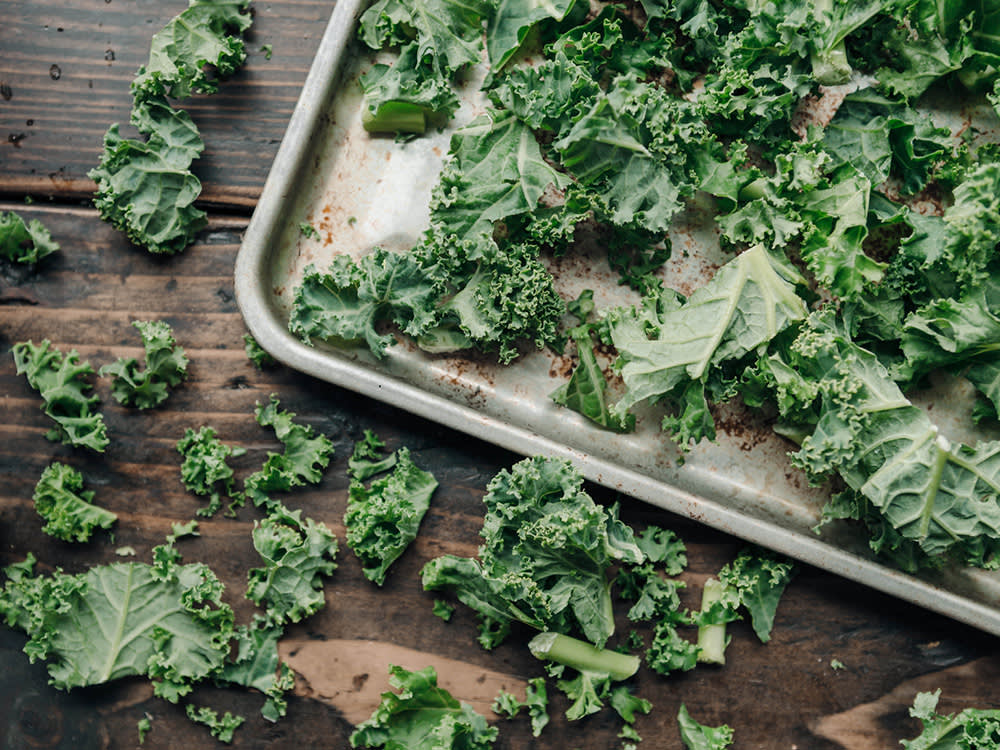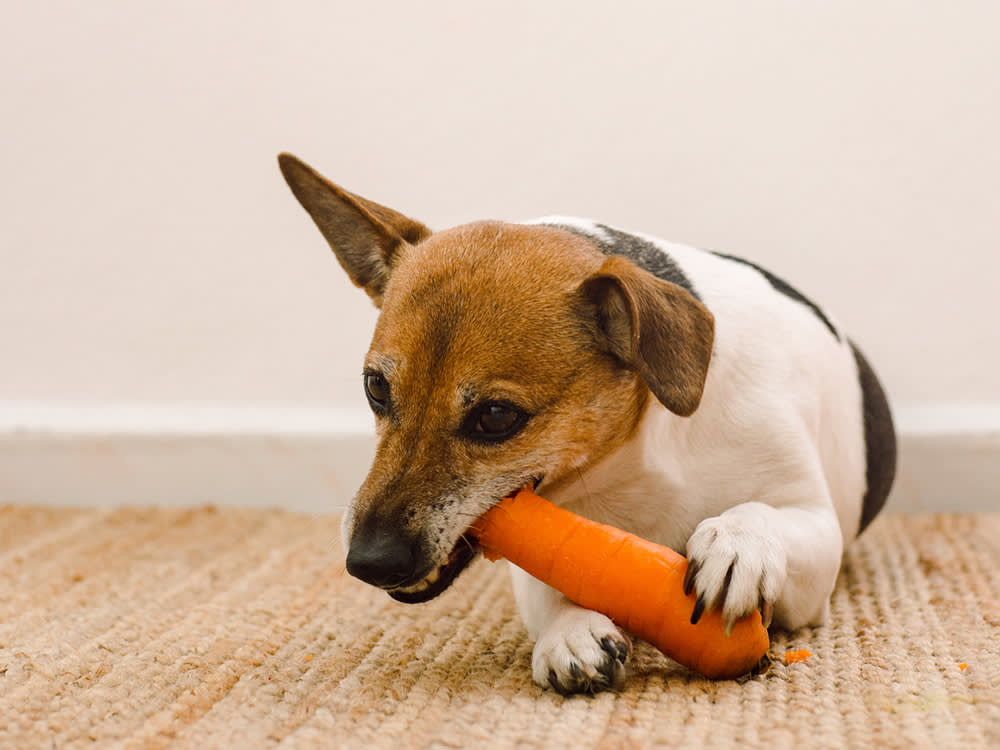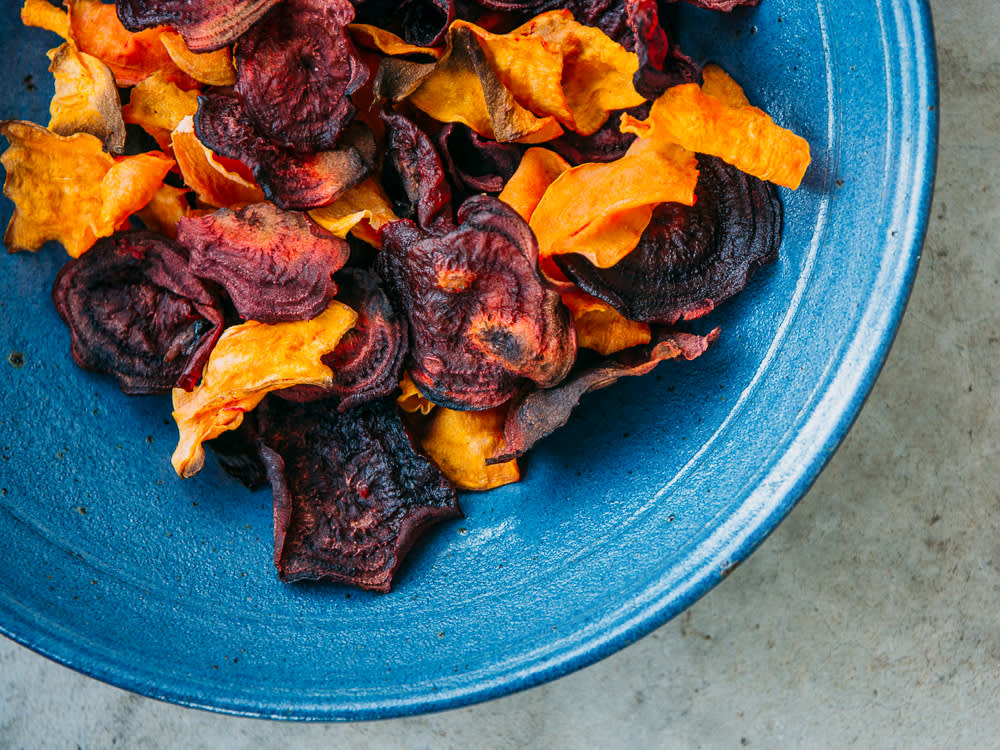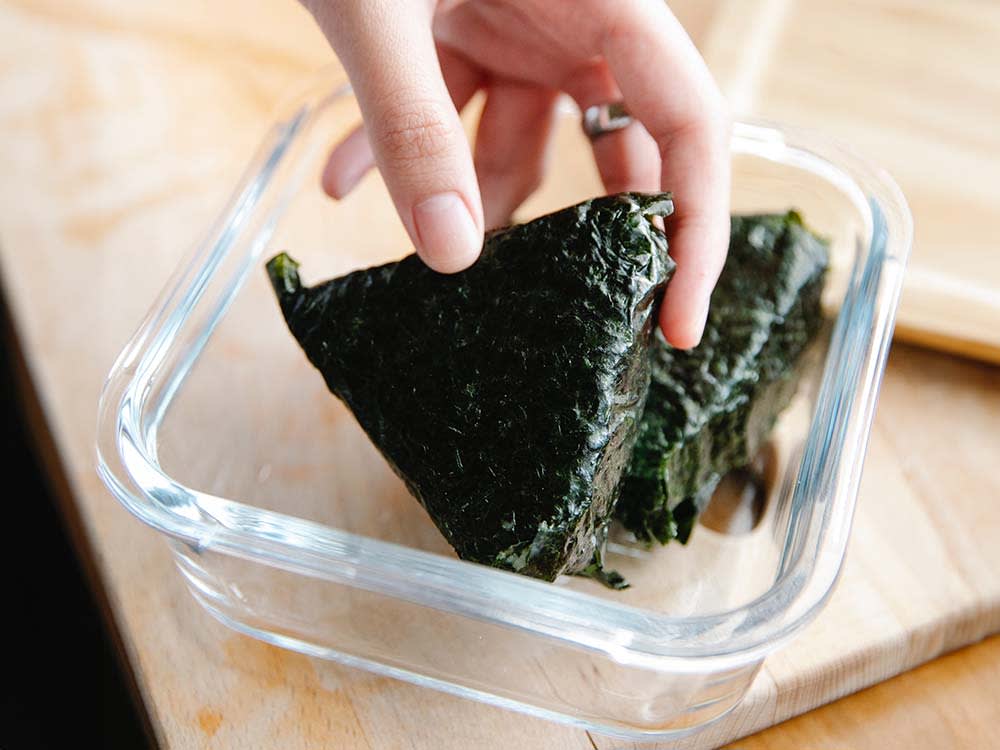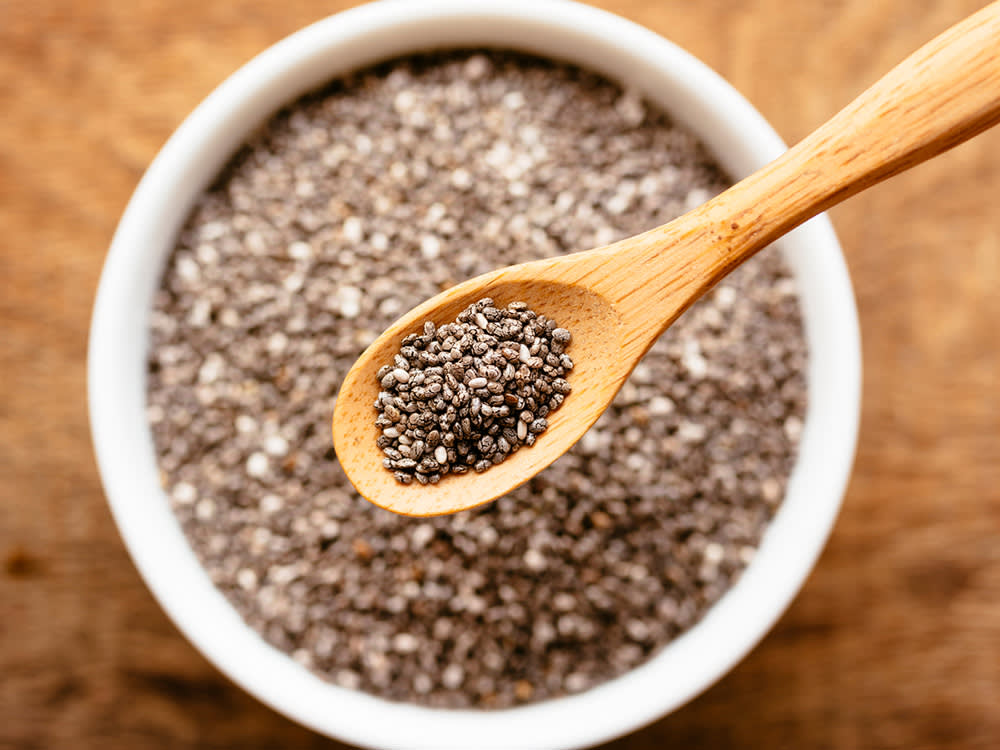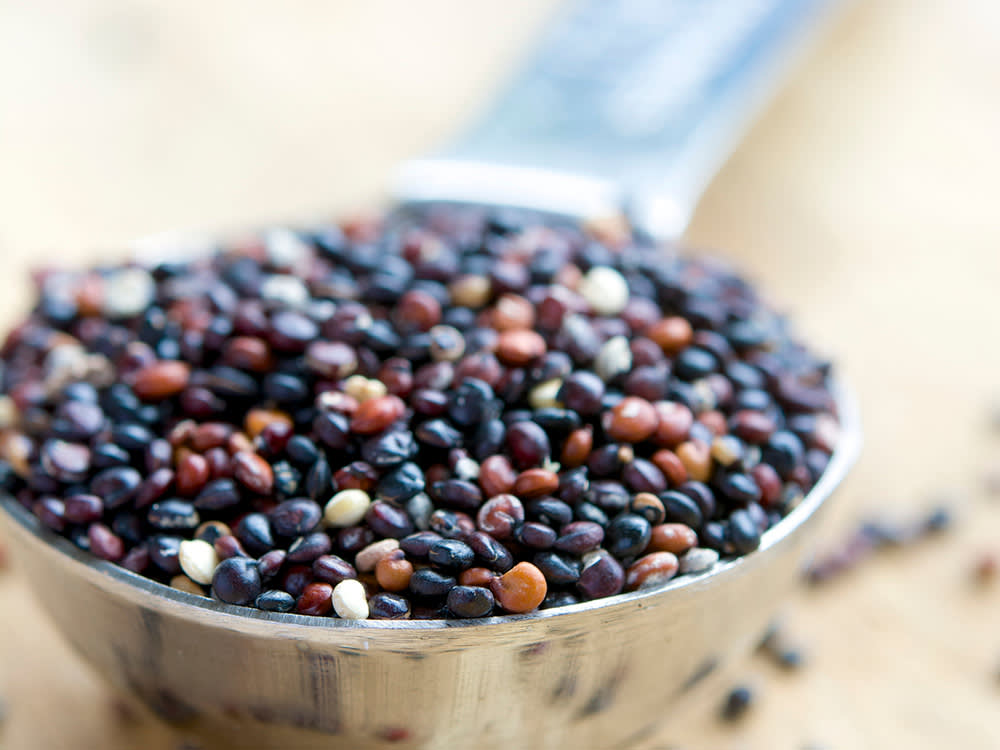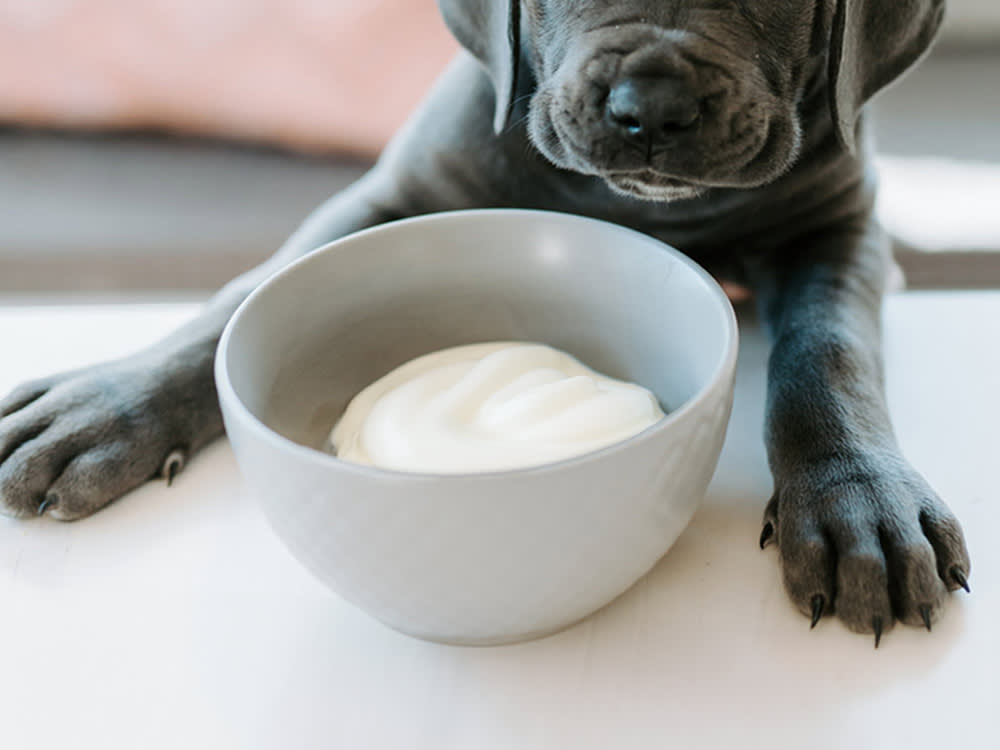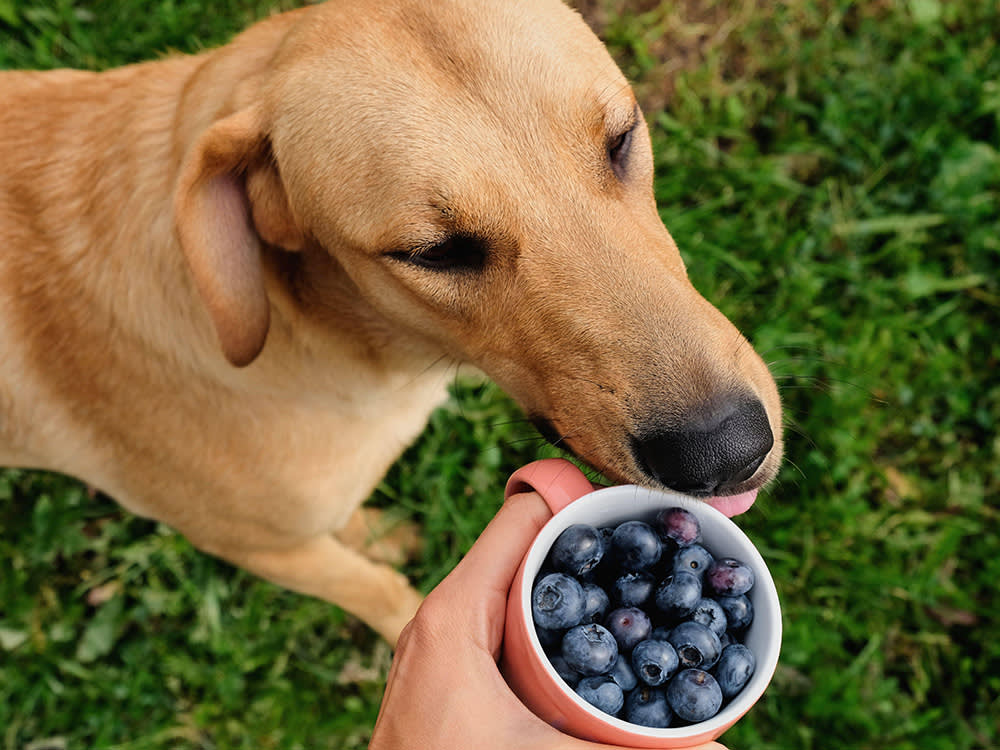10 Superfoods to Share With Your Dog
From kale to quinoa, these nutrient-packed picks deserve a spot in your dog’s food bowl

share article
You’ve heard about ‘superfoods’ for humans (lookin’ at you, salmon and blueberries). But what makes a food ‘super’ for dogs? Canine superfoods deliver the maximum amount of nutrients with minimum calories. And as it turns out, lots of superfoods for dogs are good for humans, too.
The nutrient-packed picks below will help your dog (and you) fight disease, boost energy, and maintain good health in general. They make great additions to your dog’s diet – whether you feed them packaged dog food or home-cooked meals. Just be sure to introduce these foods gradually and in proper portions – and run them by your vet first if your dog has any dietary or health issues.
10 superfoods for dogs
1. Kale
This supercharged leafy green contains loads of vitaminsopens in a new tab, including A, E and C. Kale is a good source of antioxidants and helps the liver detoxify the body. It also has anti-inflammatory properties. If your dog has bladder stones or kidney disease, ask your vet before feeding your dog kale; it may need to be avoided.
2. Carrots
Crunchy and naturally sweet, carrots are loved by most dogs. They’re loaded with carotenoids, fibre, vitamins C and K (which aid in blood clotting to help wounds heal), as well as potassium. They also have magnesium, manganese, most of the B vitamins, and phosphorus, which is required for energy production, among other things.
3. Pumpkin
Low in calories and high in soluble fibre, pumpkinopens in a new tab helps maintain a healthy digestive tract. It is low in sodium and exceptionally high in carotenoids, potassium and vitamin C; it also has some calcium and B vitamins.
4. Sweet potatoes
These tuberous root veggies are rich in beta-carotene and boast 150% more antioxidants than blueberries. Sweet potatoes are also super-high in heart-healthy vitamin A and packed with vitamin C to keep your dog’s immune system strong.
5. Fish
Oily fishes like herring, salmon, sardines, mackerelopens in a new tab and anchovies are bursting with omega-3 fatty acids. Omega-3s can do wonders for your dog’s skin, coat and brain; it can also inhibit inflammatory processes that cause arthritic painopens in a new tab and other chronic canine conditions. (If your dog has any of these conditions, ask your vet if fish oil in capsule form might help, too.) Fish are also an excellent protein source, with many essential vitamins and minerals.
6. Nori (dried seaweed)
Dried edible seaweed is a Japanese staple. Often associated with sushi, nori is available in some supermarkets, especially those that stock Asian food items. It has protein, galactans (a soluble fibre), vitamins C, E and all the Bs, and minerals such as zinc and copper. It also contains some lesser-known sterols and chlorophyll, which may help regulate metabolism. Nori may also aid in fat metabolism, immune function and anti-tumour responses. Be sure to buy low-sodium nori to keep your dog’s salt intake in check.
7. Chia seeds
The seeds of this traditional grain have several of the same benefits as the more well-known ‘super seed’ flax. But unlike flax seedopens in a new tab, you don’t need to grind them to reap the health benefits. You can simply sprinkle seeds on to your dog’s meals. The nutritional benefits of chia include fibre, omega-3 fatty acids, calcium, antioxidants and even protein. They are also highly absorbent, which means they can help hydrate the body.
8. Quinoa
Commonly considered a grain, quinoaopens in a new tab is actually a seed related to spinach. It’s a complete protein, supplying all eight of the essential amino acids and is a good source of fibre, folate, magnesium, iron, phosphorous, and many phytochemicals. One of the few vegetableopens in a new tab sources of complete proteins, quinoa is a potent antioxidant and helps reduce the risk of diabetes.
9. Yoghurt
Yoghurt contains active cultures known as probioticsopens in a new tab (aka, healthy bacteria), which help keep bad bacteria away. It may improve gut function, contains a number of nutrients, including protein, calcium, phosphorus, vitamin B12, potassium, zinc and iodine. It is also a fair source of other B vitamins, such as riboflavin and pantothenic acid (required for enzyme action and energy production, as well as other cellular functions).
10. Blueberries
Loaded with phytochemicals, blueberries are a great treat for your dog year-round (you can buy them fresh or frozen). The deep blue colour comes from anthocyanidins, which are potent antioxidants; blueberries also supply vitamins C and E, manganese and fibre. It’s best to give your dog small quantities since gorging on this tasty fruit can adversely affect canine (and human) bowel movements.
A few other healthy foods for dogs
In addition to these superfoods, there are many natural, fresh, wholesome foods that dogs and humans can thrive on, including applesopens in a new tab, green beans, papaya, leafy greens, liver and hearts, eggsopens in a new tab, oats, bananas, wheat grass, cranberries, nuts, pumpkin seeds, coconut oil, parsley, wheat germ, apple cider vinegar and many more. For dogs, animal protein such as chicken, turkey, duck, lamb, goat, rabbit, pork, beef, fish and venison should also be an integral part of their meals.

Claudia Kawczynska
Claudia Kawczynska was co-founder and editor-in-chief of The Bark for 20 years. She also edited the best-selling anthology Dog Is My Co-Pilot.
Related articles
![Dog looks up at owner on a walk through the city]() opens in a new tab
opens in a new tab7 Ways to Stop Your Dog From Scavenging On Walks
If your dog tries to wolf down literally everything in sight, you need this advice
![Chihuahua puppy wearing a native Indian necklace sitting next to a lemon]() opens in a new tab
opens in a new tabDoes Your Dog Hate Citrus?
It’s the one food most dogs can't stand. Here’s why – plus, how to use their dislike of citrus to your advantage
![Black puppy chews on a frozen Kong treat]() opens in a new tab
opens in a new tabWhy Your Puppy Needs a Frozen Kong
Two words: endless entertainment
![Owner serving dog food]() opens in a new tab
opens in a new tabYour Dog’s Food Aggression Isn’t Cute – Here’s How You Can Work On It
No longer associate feeding time with growling time
